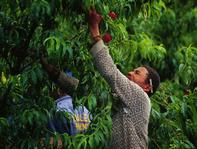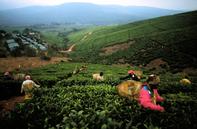Survival of Commercial Farmers
Food, for the average poor household, is about survival. For people in the business of growing, processing and shipping food, it is a commodity. They are not doing it out of altruism; they are doing it for the profit.

But their survival as solid business ventures is critical to a nation’s ability to feed itself. If our farmers do not survive, we do not. What happens at the very top of the food value chain has implications for every consumer down at the other end of the value chain – and when things make the business of food expensive, it is usually the poorest consumer that gets hit by the price hikes.
Top of the Food Value Chain
A farmer in the business of growing food and is one of about 40 000 large commercial farmers in the country who produce much of the stuff that keeps the South African pantry stocked up. The notion of ‘food security’ means different things, depending on where you view it on the food value chain: nationally, regionally, within a community or at a household level.
Here, at the top of the food value chain, we are talking mostly about production – farming – and what this means for food security on a national level. This bird’s-eye view of the system is mostly about the pool of food available within a country, where commercial farmers are the most important. One of the factors that affects the food security of a country is how much food makes it into the national pool.
This is the sum of all food farmed within our borders, plus any imported foods, and any food aid (although this applies more to some of our neighbours since South Africa does not need aid in this way), minus any food taken out of the pool through, for instance, exports. Whatever is left is the nation’s food security status for the time being.
Conversation Around National Food Security

Any condition that influences a nation’s ability to ‘manufacture, import, retain and sustain food needed to support its population with minimum per capita nutritional standards’ has implications for food security at a national level.
That is why the conversation about national food security steers towards the importance of protecting commercial farmers, and allowing small-scale and emerging farmers to build capacity, infrastructure and access to markets.
The conversation about national food security also tends to focus on topics such as: The implications of a changing climate and dwindling water resources on agricultural outputs; the price of oil and the fluctuating value of the rand, and how they impact on the often-rising cost of agricultural inputs; commodity trading; the shift of grains from the dinner plate to the fuel tank of cars and trucks through a growing interest in biofuels; land reform policy to redress the impoverishment caused when so many black South Africans were stripped of their land in the apartheid and pre-apartheid political landscape; and our government’s handling of farming subsidies with our northern trading partners.
The management of fishing stocks also falls into the part of the debate concerned with national food security, although that is an issue quite separate to commercial farming of grains, fruits, vegetables, nuts, seeds and livestock.
The Production Bias
These are all critical issues, which, together, could constitute a book in their own right. However, farming has received plenty of attention until now, resulting in what some thinkers are referring to as a ‘production bias’ in the food security debate. There are many other factors that determine whether households and communities are able to get regular, safe, healthy foods.
But suffice to say that forces exerting themselves at the top of the food value chain eventually influence how food secure homes are at the other end of the value chain.